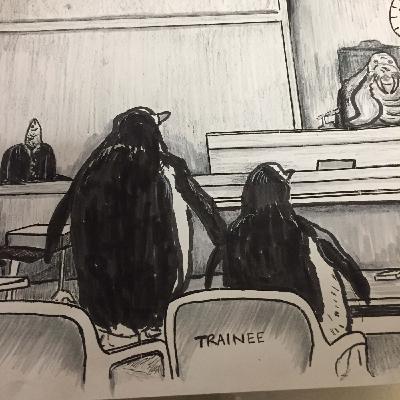
Advocacy in Court: Preparation and Performance
Author: Hugh
Subscribed: 9Played: 70Description
Court and Tribunal advocacy requires practical skills. The episodes in this Podcast explain and illustrate the skills that advocates need in any adversarial system.
Episodes are up to 15 minutes, so easily fitted into your busy day. Although the episodes follow a logical order each one is 'stand alone', because every advocate has different needs.
With over 13,000 hits ( July 2025) this free series is helping those who want to be better advocates.
After you have some in court/tribunal experience come back and relisten, so that you can improve on what you just did from the advocate's table.
Please tell other 'wanna to be better' advocates AND get your witnesses to listen to the free WITNESS ESSENTIALS podcast, just four episodes ( a fifth one for expert witnesses). This series saves you time and gives your witnesses insights and confidence. Listen yourself and see how much time you can save, while better preparing your client and your witnesses.
An inexpensive, companion book with the same title ADVOCACY IN COURT: PREPARATION AND PERFORMANCE is on Amazon Kindle.
For questions and comments email hughmselby@gmail.com
Hosted on Acast. See acast.com/privacy for more information.






